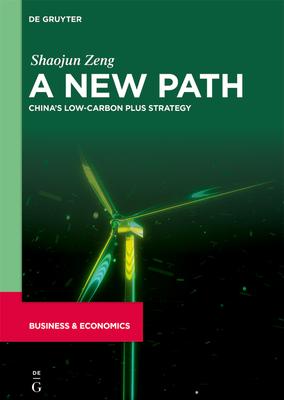In September 2020, China announced that it would peak carbon dioxide emissions by 2030 and become carbon neutral by 2060. How and whether it can achieve the target is a matter of great concern to the international community. This is the first book to provide a comprehensive analysis of the underlying theory of "Low-Carbon Plus", in which "low carbon" is the core and "plus" represents the critical areas that will go through low-carbon transformation (including industry, agriculture, buildings, transportation, energy and consumption), and puts forward the most practical path for China to achieve carbon neutrality. Starting from the basic theory of the Low-Carbon Plus strategy, the book introduces the low-carbon development situation domestically and abroad, summarizes the essential experiences and inspirations, and outlines a roadmap for China to implement the strategy. While focusing on emission reduction in primary and secondary industries, this book strongly recommends the development of low-carbon finance and low-carbon consumption, which can facilitate the ultimate realization of the Low-Carbon Plus strategy. As a fruitful result of the research by China’s national think tank, Low-Carbon Plus is an emerging development model that complements economic development and forces technological innovation, institutional innovation, and mind shift, and it is expected to have a significant and far-reaching impact on global economic growth.
| FindBook |
有 1 項符合
A New Path: China’s Low-Carbon Plus Strategy的圖書 |
 |
A New Path: China’s Low-Carbon Plus Strategy 作者:Zeng 出版社:de Gruyter 出版日期:2023-08-21 語言:英文 規格:精裝 / 425頁 / 普通級/ 初版 |
| 圖書館借閱 |
| 國家圖書館 | 全國圖書書目資訊網 | 國立公共資訊圖書館 | 電子書服務平台 | MetaCat 跨館整合查詢 |
| 臺北市立圖書館 | 新北市立圖書館 | 基隆市公共圖書館 | 桃園市立圖書館 | 新竹縣公共圖書館 |
| 苗栗縣立圖書館 | 臺中市立圖書館 | 彰化縣公共圖書館 | 南投縣文化局 | 雲林縣公共圖書館 |
| 嘉義縣圖書館 | 臺南市立圖書館 | 高雄市立圖書館 | 屏東縣公共圖書館 | 宜蘭縣公共圖書館 |
| 花蓮縣文化局 | 臺東縣文化處 |
|
|
內容簡介
作者簡介
Shaojun Zeng, PhD in Economics, is a researcher and is currently Academic Vice Chairman and Secretary General of China New Energy Chamber of Commerce (CNECC). He was previously a postdoctoral fellow in management science and engineering at Tsinghua University. He is the founding member of the China Carbon Neutral 50 People Forum, Qihang tutor of graduate students at Tsinghua University, and a reviewer for Energy Policy, Climate Policy and other international high-level academic journals. He also serves as the distinguished expert of the Third-Party Supervision and Evaluation Mechanism at the national level, a special commentator of China Media Group, the investment consultant of Sichuan provincial government, vice chairman of the New Energy Strategy Advisory Committee of Datong Municipal government, visiting professor at Guizhou University, distinguished professor of University of Chinese Academy of Sciences and a World Bank China Energy Project Expert Group Leader.
He has been engaged in public policy and national strategy research on new energy and climate change for a long time. He has presided over and participated in more than 60 major research projects at the ministerial level, and has won more than ten awards for outstanding academic achievements from the National Development and Reform Commission and the National Energy Administration.
|











